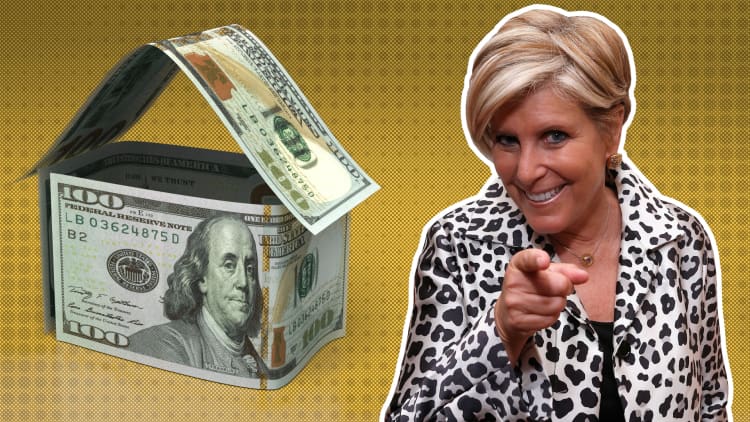Although some money experts say that following a cash-only spending policy is an effective way to budget, it's also not always the safest or most lucrative payment option.
"There is no universal advantage to using cash," Greg McBride, chief financial analyst at Bankrate.com, tells CNBC Make It. "Cash offers no protection from loss, theft or fraud that you are afforded with credit and debit cards. Plus, there is also a cost to cash, like with ATM withdrawals."
Many Americans already go cashless. In the U.S. about 3 in 10 people say they make no purchases in cash in a typical week.
There are still circumstances when using physical forms of currency is unavoidable, such as when dining at a cash-only restaurant. If you can help it, though, these are the two times you should absolutely swipe your card instead.
1. You are spending a lot on a single purchase
McBride warns against using cash to pay for a major purchase for a number of reasons. Most importantly, if you use cash to make a substantial purchase, he says he "sure hopes you hold onto the receipt."
That's because proving past purchases is much easier through a digital form of payment rather than dollar bills. If you use cash to pay for something like a new car or home renovation, you're going to need to hold onto your receipts for when tax season rolls around.
"Your CPA will ask for all of your details to make the assessment as to whether you should take the standard deduction or the itemized deduction," Amy Wang, CPA and senior manager on the American Institute of CPAs' tax policy and advocacy team, told CNBC.
"There is no universal advantage to using cash. Cash offers no protection from loss, theft or fraud that you are afforded with credit and debit cards.Greg McBrideChief Financial Analyst at Bankrate.com
You may also miss out on potential warranties and purchase protection if you use cash to make an expensive purchase, McBride says. "With many credit cards, there is coverage offered in addition to whatever manufacturer warranty there might be in place," he says. Some credit cards will even allow you to extend warranties for longer.
Say your phone breaks after the manufacturer warranty ends. Your credit card may offer additional protection so you're still covered for a replacement. But had you used cash to buy the phone, you wouldn't be.
Since most people don't carry enough cash on them to cover big purchases, it can be inconvenient if you need to stop by an ATM. There could be fees involved as well.
Finally, you could earn rewards if you use a credit card to front the cost of an high-priced item. But, if you use cash, there's no return on your spending. However, make sure you use credit cards responsibly, pay them off on time and avoid making purchases for the sake of rewards if you cannot pay off the balance in full at the end of the month.
2. You are concerned about the safety of your money
If you are worried about your money being stolen, you don't want to carry cash. When traveling in an unsafe area or walking alone late at night, you probably don't want to be caught with a lot of cash on you.
"If somebody pops you over the head and takes your debit card, you report it to your financial institution and you're not liable for any fraudulent [charges]," McBride says. However, cash is harder to trace and is likely gone for good if an unknown person swipes it. And because cash requires no PIN number to use, it's easier to spend once stolen.
While debit cards are safer than using cash, they aren't foolproof against fraud. If you don't call your card issuer within two days of noticing strange activity on the account, you could be held liable for up to $500 in fraudulent charges. Plus, waiting to be reimbursed for any fraudulent charges can take time.
Credit cards are typically the safest mode of payment. If somebody steals your credit card and makes purchases, federal law limits your liability to $50 — and many cards offer zero liability protection. That means all you have to do is call and explain that your card has been stolen and has incurred fraudulent charges, and you won't be held responsible.
If your cash goes missing, there isn't any official number you can call in order to get it back.
Like this story? Subscribe to CNBC Make It on YouTube!
Don't miss: The 10 major U.S. cities where housing costs have increased the most



